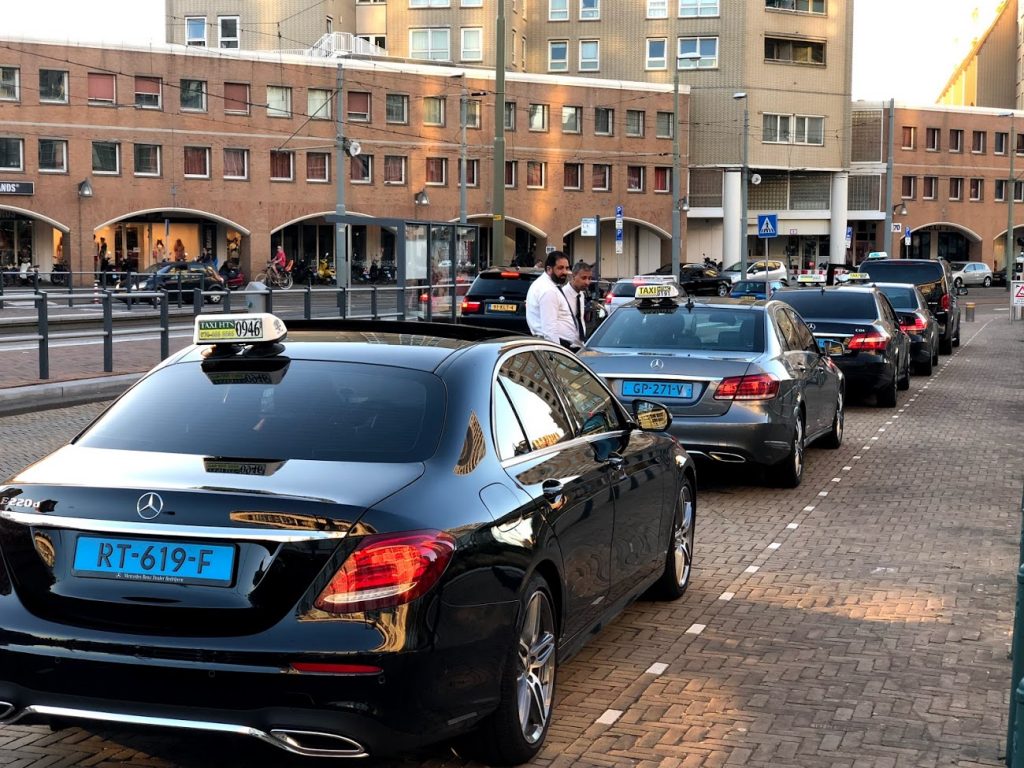The pursuit of a future-proof healthcare transport and taxi sector is more than an ambition.
It is a necessity for Dutch society. To realize this vision, the Royal Dutch Transport (KNV) emphasizes three crucial key points. These guiding principles are not only designed to renew and make the sector more sustainable, but also to ensure that mobility remains accessible and affordable for everyone. With this, KNV underlines the indispensable role of healthcare transport and taxi in binding the Netherlands together.
Dutch healthcare transport and the taxi sector are at a tipping point, driven by social, political, economic and technological changes. The Royal Dutch Transport (KNV) recently published its vision for the future, “Care Transport and Taxi”. published. This paper outlines a path forward for an industry that is critical to maintaining an economically healthy, inclusive society.
indispensable role
With more than a million passengers per week, transported by 27.000 employees and 8.000 self-employed people, the sector plays an indispensable role in Dutch social and economic life. People rely on these services for essential activities: from work and school to medical appointments and social visits.

The sector is at a crossroads where dialogue and action are required to transform today's challenges into tomorrow's opportunities.
However, the healthcare transport and taxi sector is facing a series of challenges. Aging population, the advance of digitalization, a changing political landscape, the movement towards a more inclusive society, and a tight labor market all have an impact. KNV emphasizes the need for the sector to adapt and innovate to meet the changing needs of society.
Healthcare transport, which accounts for approximately 75% of the total, includes specialized services such as student transport, patient transport, and transport for the disabled. The remaining 25% consists of consumer and business taxi transport. These services are often the only means of transport in areas without public transport, making their continued existence vital to the country's connectivity.
Political and economic trends point to a number of challenges. KNV predicts a major deficit in municipal budgets in 2026, with a possible decrease of €3,4 billion compared to 2025. In addition, the call for more self-reliance and social participation of citizens is becoming louder, as is the desire for a more efficient and less interfering government. The political landscape is characterized by instability and a focus on personal profiling over party politics, which makes stable policy difficult.

An important demographic phenomenon that influences the demand for healthcare transport and taxis is the aging population. This not only increases the demand for transport services, but also puts pressure on the workforce. The tightness in the labor market is an ongoing problem and poses a significant risk to the sector. To ensure sustainability and continuity, attracting new talent is essential.
Economically, the aging of the population and a higher number of women in the labor market will influence the demand for services and the supply of labor. Social trends, such as urbanization and the digitalization of society, are changing customers' mobility needs and expectations. In addition, KNV emphasizes the need for more sustainable mobility, in line with national and international climate objectives.
three spearheads
To meet these challenges, put KNV focuses on three key points: promoting sustainability, encouraging digitalization and technological innovation, and strengthening the labor market. These spearheads are essential to make the sector future-proof and to ensure that it continues to meet the needs of a changing society.
Mobility is essential for a healthy Dutch socio-economic climate. It is a basic need that guarantees free space and makes social and economic encounters possible. Healthcare transport and taxi is an indispensable link in the mobility landscape.
The future of healthcare transport and taxi in the Netherlands depends on the capacity of the sector to innovate and adapt to these changing circumstances. With KNV's vision as a guideline, there is hope that the industry will develop into a sustainable, inclusive and flexible service that is essential for the well-being of the Dutch population.
With a focus on innovation, sustainability, and personnel development, the healthcare transport and taxi sector can reposition itself as an essential link in the Dutch mobility infrastructure. Creating a future-proof sector requires a joint effort from all parties involved, including governments, transport companies, training institutions, and the community as a whole.




